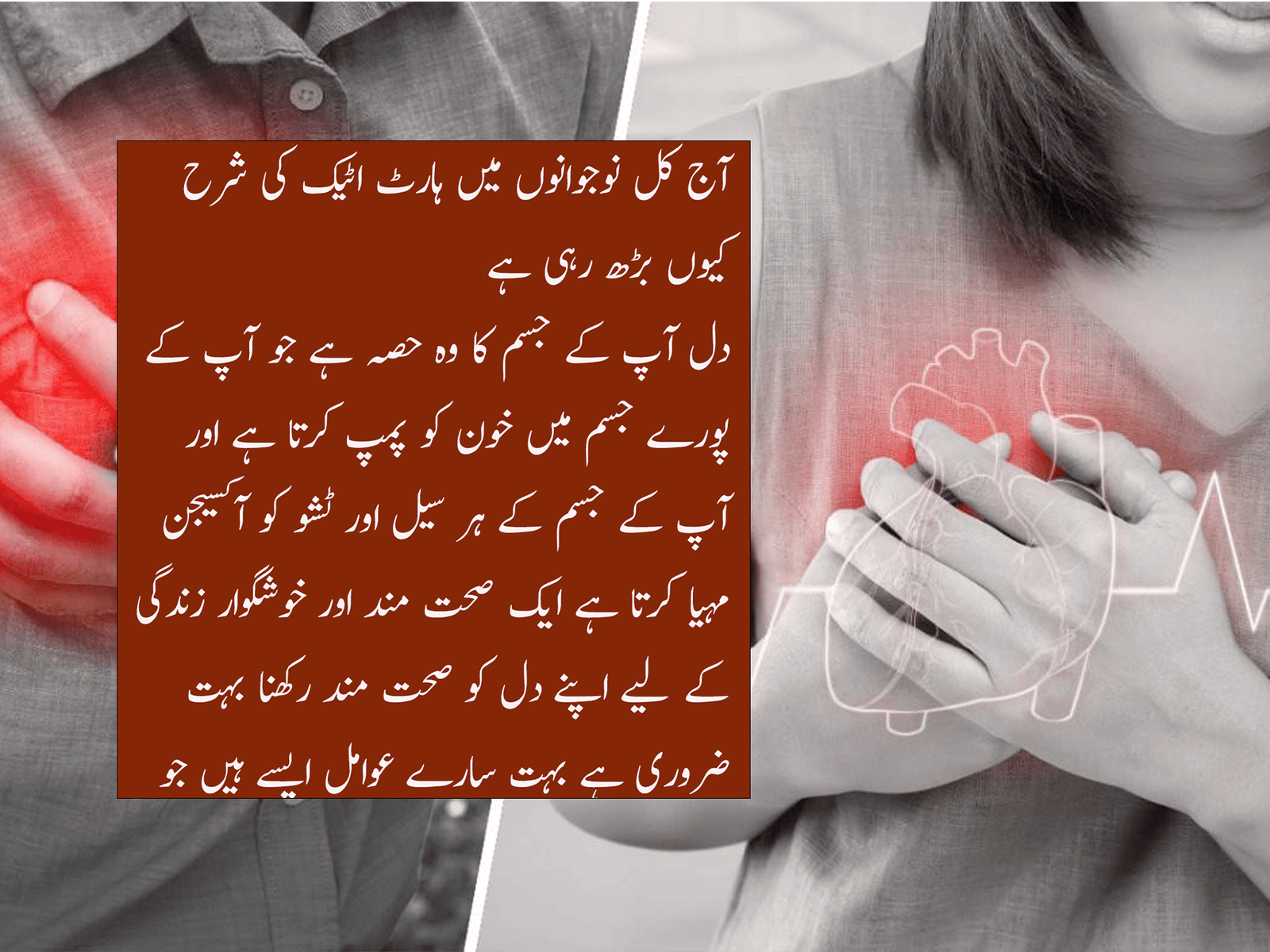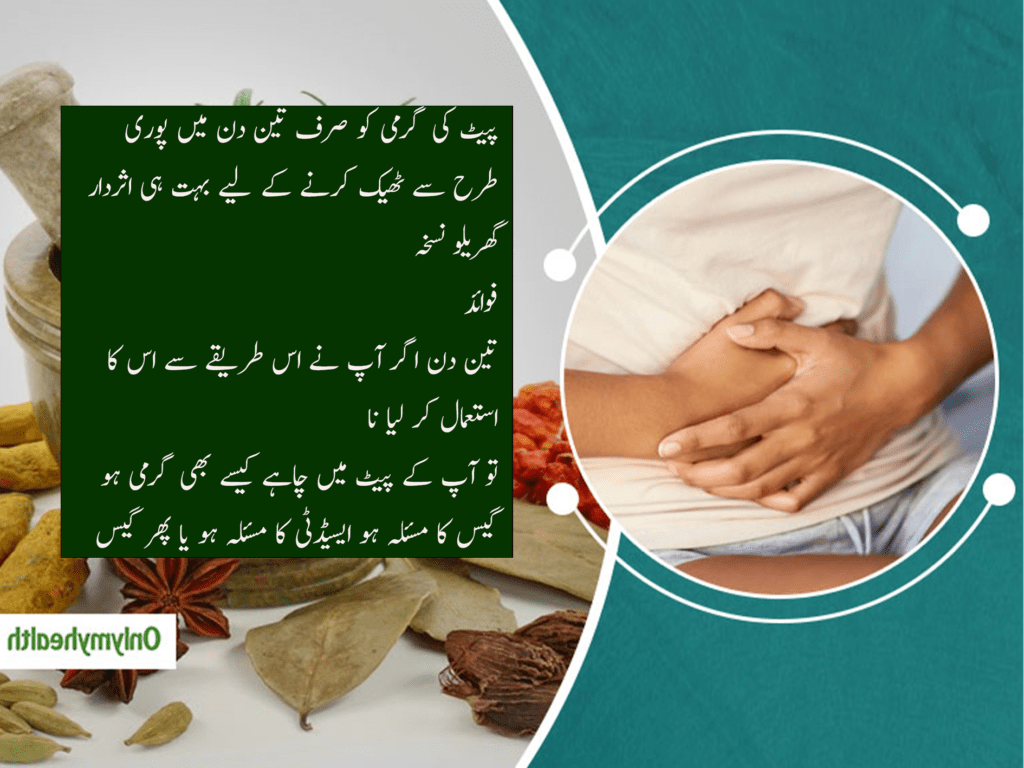Understanding the Rising Rate of Heart Attacks Among Young Individuals
In recent years, a concerning trend has emerged: the rising incidence of heart attacks among young people. Traditionally associated with older individuals, heart attacks are increasingly affecting those in their prime. This shift has prompted questions about the underlying causes, risk factors, and preventive measures that can curb this alarming phenomenon. In this exploration, we delve into the multifaceted reasons behind the surge in heart attacks among young adults.
Lifestyle Changes: The Culprit of Modern Living
Modern lifestyles characterized by sedentary behavior, unhealthy dietary choices, and high stress levels have created a perfect storm for heart health issues. The prevalence of fast food, lack of physical activity, and constant exposure to stressors can contribute to obesity, high blood pressure, and elevated cholesterol levels – all key risk factors for heart attacks.
آج کل نوجوانوں میں ہارٹ اٹیک کی شرح کیوں بڑھ رہی ہے
دل آپ کے جسم کا وہ حصہ ہے جو آپ کے پورے جسم میں خون کو پمپ کرتا ہے اور آپ کے جسم کے ہر سیل اور ٹشو کو آکسیجن مہیا کرتا ہے ایک صحت مند اور خوشگوار زندگی کے لیے اپنے دل کو صحت مند رکھنا بہت ضروری ہے بہت سارے عوامل ایسے ہیں جو آپ کے دل کی صحت کو خطرے میں ڈال سکتے ہیں جس میں سے چند اہم عوامل کا ذکر کریں گے نوجوانوں میں بھی ہارٹ اٹیک کی شرح خطرناک حد تک بڑھ رہی ہے نمبر ایک مینٹل سٹریس ذہنی دباؤ دل کی بیماری میں اہم کردار ادا کرتا ہے ہائی سٹریس لیول آپ کے دل کی دھڑکن اور بلڈ پریشر کو بڑھانے میں اہم کردار ادا کرتا ہے جس کی وجہ سے آپ کے دل کو لانگ نقصان پہنچتا ہے اس کے لیے کچھ قدرتی طریقے اپنا کر جیسے
ورزش یوگا اور میڈیکیشن وغیرہ
سے اپنے سٹریس لیول کو مینج کرنے کی کوشش کریں
نیند کی کمی
اچھی نیند آپ کے دل کی صحت میں بہت اہم ہے اچھی نیند سے دوری دل کی دھڑکن میں اضافہ ہائی بلڈ پریشر ذہنی دباؤ اور دل کی بیماریوں کا باعث بننے والے عوامل کے خطرات کو
کئی گنا بڑھا سکتی ہے اس لیے روزانہ سات سے اٹھ گھنٹے سونا اپنا معمول بنا لیں نمبر تین فزیکل ایکٹیوٹی اپنے دل کو صحت مند رکھنے کا جو ایک پر اثر طریقہ ہے وہ ہے باقاعدہ ورزش کرنا
فزیکل ایکٹیوٹی
کوئی بھی فزیکل ایکٹیوٹی آپ کے بلڈ پریشر کولیسٹرول لیول کو کم کرتی ہے اور آپ کے ہارٹ فنکشن کو امپرو کرتی ہے اس لیے دن میں کم از کم 30 منٹ سے ایک گھنٹہ ایکسرسائز لازمی کریں جیسے کہ واکنگ سویمنگ رننگ یا پھر کوئی بھی فزیکل ایکٹیوٹی جو آپ چاہیں کر سکتے ہیں
متوازن غذا
آپ کی غذا آپ کے دل کی صحت میں اہم کردار ادا کرتی ہے ایک ہیلدی اور متوازن غذا آپ کے دل کی بیماری ہائی بلڈ پریشر اور ہائی کولیسٹرول لیول کے خطرے کو کم کرنے میں مدد کر سکتی ہے اپنی خوراک میں زیادہ پھل سبزیاں اور دالیں شامل کریں چکنائی والی غذائیں کو کم کریں اس کے علاوہ اضافی شوگر اور نمک کی مقدار کو بھی کم سے کم رکھیں
موٹاپہ
وزن کا زیادہ ہونا یا موٹاپہ آپ کے دل پر مسلسل دباؤ ڈال سکتا ہے زیادہ وزن ہائی بلڈ پریشر ہائی کولیسٹرول لیول اور دل کی بیماری کا باعث بننے والے عوامل کو کئی گنا بڑھا دیتا ہے متوازن غذا کا استعمال کر کے اور باقاعدگی سے ورزش کر کے آپ ہیلدی ویٹ برقرار رکھ سکتے ہیں
تمباکو نوشی
تمباکو نوشی یا سموکنگ دل کی بیماریوں کی اہم وجوہات میں سے ایک ہے سموکنگ آپ کے خون کی نالیوں کو نقصان پہنچا سکتی ہے آپ کے بلڈ پریشر اور دل کی دھڑکن کو بڑھا سکتی ہے اور آپ کی شریانوں میں بلاک بن سکتا ہے جو کہ خون کی نالیوں کی تنگی کا باعث بنتا ہے لہذا سگرٹ نوشی کو ترک کرنا ان بہترین عادات میں سے ایک ہے جو اپ اپنے دل کی صحت کے لیے کر سکتے ہیں اس کے علاوہ ہائی بلڈ پریشر اور ہائی کولیسٹرول لیول دل کی بیمار یوں کے لیے دو اہم خطرات والے عوامل ہیں اپنے بلڈ پریشر اور کولیسٹرول لیول کو باقاعدگی سے مونیٹر کریں اور ان کو صحت مند حد میں رکھنے کے لیے اقدامات کریں
Poor Dietary Habits: A Recipe for Disaster
The rise of processed and sugary foods in daily diets has exacerbated the problem. These foods often lack essential nutrients and fiber while being high in trans fats and refined sugars. Such diets can lead to obesity, diabetes, and inflammation – all contributing factors to heart disease.
Sedentary Lifestyle: The Hidden Danger
Advancements in technology have inadvertently led to more sedentary habits. Long hours spent sitting, whether at work or while engaging with screens, can increase the risk of heart attacks. Physical inactivity can lead to weight gain, weakened heart muscles, and impaired circulation.
Stress and Mental Health: Impact on Heart Health
The fast-paced nature of contemporary life has given rise to heightened stress levels and mental health challenges. Chronic stress triggers the release of hormones that can negatively affect heart health, potentially leading to inflammation and arterial damage. Conditions like anxiety and depression also contribute to unhealthy behaviors that impact the heart.
Substance Abuse: A Hidden Culprit
The misuse of substances such as tobacco, alcohol, and recreational drugs among young adults has dire consequences for cardiovascular health. Smoking and drug use can damage blood vessels and increase the risk of heart attacks. Excessive alcohol consumption can lead to high blood pressure and arrhythmias.
Genetics and Hereditary Factors: The Role of DNA
Genetic predisposition also plays a significant role in determining an individual’s vulnerability to heart disease. A family history of heart problems can increase the likelihood of early heart attacks. Understanding one’s genetic makeup can guide personalized prevention strategies.
Lack of Awareness: Ignoring Warning Signs
Young people often underestimate the risk of heart disease, assuming it’s a concern only for older individuals. Ignoring warning signs such as chest pain, shortness of breath, and fatigue can lead to delayed medical attention and increased damage to the heart muscle during a heart attack.
Conclusion
The rising rate of heart attacks among young individuals demands urgent attention and action. A comprehensive approach is needed, encompassing lifestyle modifications, education, stress management, and timely medical interventions. By fostering awareness, adopting healthy habits, and seeking medical guidance, young people can empower themselves to mitigate risk factors and prioritize heart health. Ultimately, a collective effort – from individuals to healthcare systems – is required to reverse this troubling trend and ensure a healthier future for the next generation.





